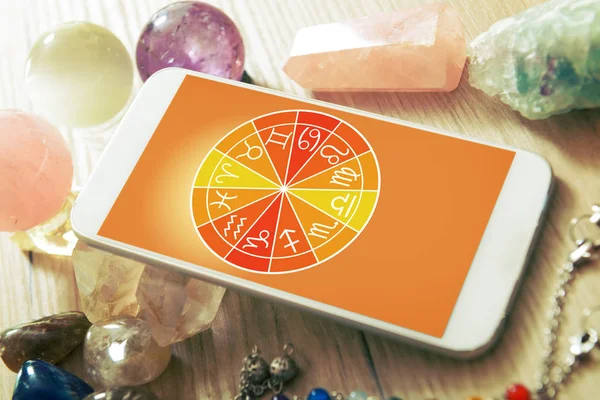
Astrology in 2025 is not just some sort of mysticism it is an entire digital movement. To Generation Z, the stars have moved from ancient symbols to algorithm-driven ways of self-discovery, emotional centering, and community building online. What once found its place in fusty bookstores is now alive and well on TikTok feeds, AI chatbots, and personalized apps that help mold one’s identity in ways that are both intimate and shareable.

1. Self-Discovery Through Fluid Archetypes
Astrology offers Gen Z something traditional identity frameworks often can’t flexibility. Instead of fixed labels, birth charts present evolving archetypes that grow alongside personal experience. As Vanya Mishra of Astrosure.ai notes, “Gen Z is arguably one of the most self-aware and inquisitive generations we’ve seen. They challenge traditional belief systems and prefer introspection, self-interpretation, and personalised paths to meaning.” This fluidity resonates in a generation comfortable mixing logic with intuition, where a rising sign can be as revealing as a personality test.

2. A Therapeutic Anchor in Uncertain Times
Post-pandemic anxiety, burnout, and existential uncertainty have made astrology more than a trend-it’s become emotional infrastructure. Leigh Roberts from Hint says, “Gen Z grew up with science at their fingertips, but when it comes to love, they are looking for something science alone cannot provide a sense of narrative and coherence.” Whether decoding a Saturn Return or reading a daily transit, astrology offers low-pressure self-help, helping users reframe challenges without rigid prescriptions.

3. The Algorithmic Rebirth of the Stars
AI-driven platforms like Co-Star, The Pattern, and AstroGPT have transformed astrology into customized mysticism. AstroSage’s founder Punit Pandey reports Gen Z is the fastest-growing user segment, expanding at 11% month-on-month, with over one million daily active users. These tools deliver instant, hyper-personalized readings, appealing to Gen Z’s craving for quick affirmation and relatable insights whether it’s a meme about “classic Scorpio energy” or a chatbot decoding planetary transits in seconds.

4. Social Media as the New Astrology Classroom
The astrologers on TikTok democratized complex cosmic knowledge by simplifying natal charts into visually engaging, bite-sized pieces of content. Social media algorithms amplify niche spiritual movements, turning zodiac memes and astro-skits into viral phenomena. As strategist Erin Williams notices, astrology content “taps into identity, emotion, and community simultaneously-that’s marketing gold.” This shareability, in turn, uses cosmic language as social shorthand, creating belonging without hierarchy.

5. Branding, Aesthetics, and Self-Expression
Astrology has turned into an aesthetic language of self-branding. From zodiac-themed playlists to horoscope-inspired merch, brands align products with sign traits to deepen emotional connection. Starbucks crafts horoscope beverages, while Spotify curates zodiac playlists. As Instagram’s 2023 Trend Report revealed, nearly half of Gen Z social media users wouldn’t date someone with an “incompatible” chart-a testament to astrology’s role in shaping personal and relational identity.

6. Cultural Pluralism and Identity Politics
Astrology for members of Gen Z often encompasses not just Western systems, but Vedic, Chinese, and indigenous ones. That reflects a bigger drive toward decolonizing knowledge and truth. Astrology now comes across “almost like a Myers-Briggs personality indicator,” says Jean-Olivier Richard, a science historian. Astrology is helping young people explore identity through a pluralistic lens.

7. Emotional Safety and Ethical Concerns
While astrology is comforting, experts caution against overreliance on the practice. According to psychiatrist Dr. Vishesh Kasliwal, negative forecasts can heighten anxiety and reduce self-efficacy. So, platforms are taking steps in response Astroyogi trains astrologers to avoid using fear-based language AstroSage filters AI responses for empathy and Astrosure.ai bans “cursed chart” narratives. These are some of the safeguards that keep astrology supportive rather than deterministic.

8. From Skepticism to Mainstream Acceptance
Even skeptics acknowledge astrology’s cultural power. Once dismissed as pseudoscience, it now operates as pop-psychology, offering frameworks for emotional and social needs. As Chani Nicholas, one of the most influential astrologers online, writes, “We all want to be witnessed.” For many, astrology provides that witness validating feelings, reframing challenges, and offering a sense of connection in a fragmented world.

9. The Future: Hybrid Spiritual-Tech Ecosystems
Analysts foresee a future of deeper integrations with AI, augmented reality sky charts, and personalized planetary forecasting. As Mishra puts it, the future of astrology is “part data, part destiny.” For today’s digital natives, the stars aren’t distant anymore-they’re interactive, personalized, and embedded in everyday life.
This is a heady marriage of ancient symbolism and modern tech that can only portend a lasting shift: astrology as mirror and map for traversing the algorithmic age. Astrology’s digital renaissance isn’t about forecasting the future-so much as programming identity, building community, and finding meaning in uncertainty. In a generation fluent in both data and dreams, the stars have never felt closer.


